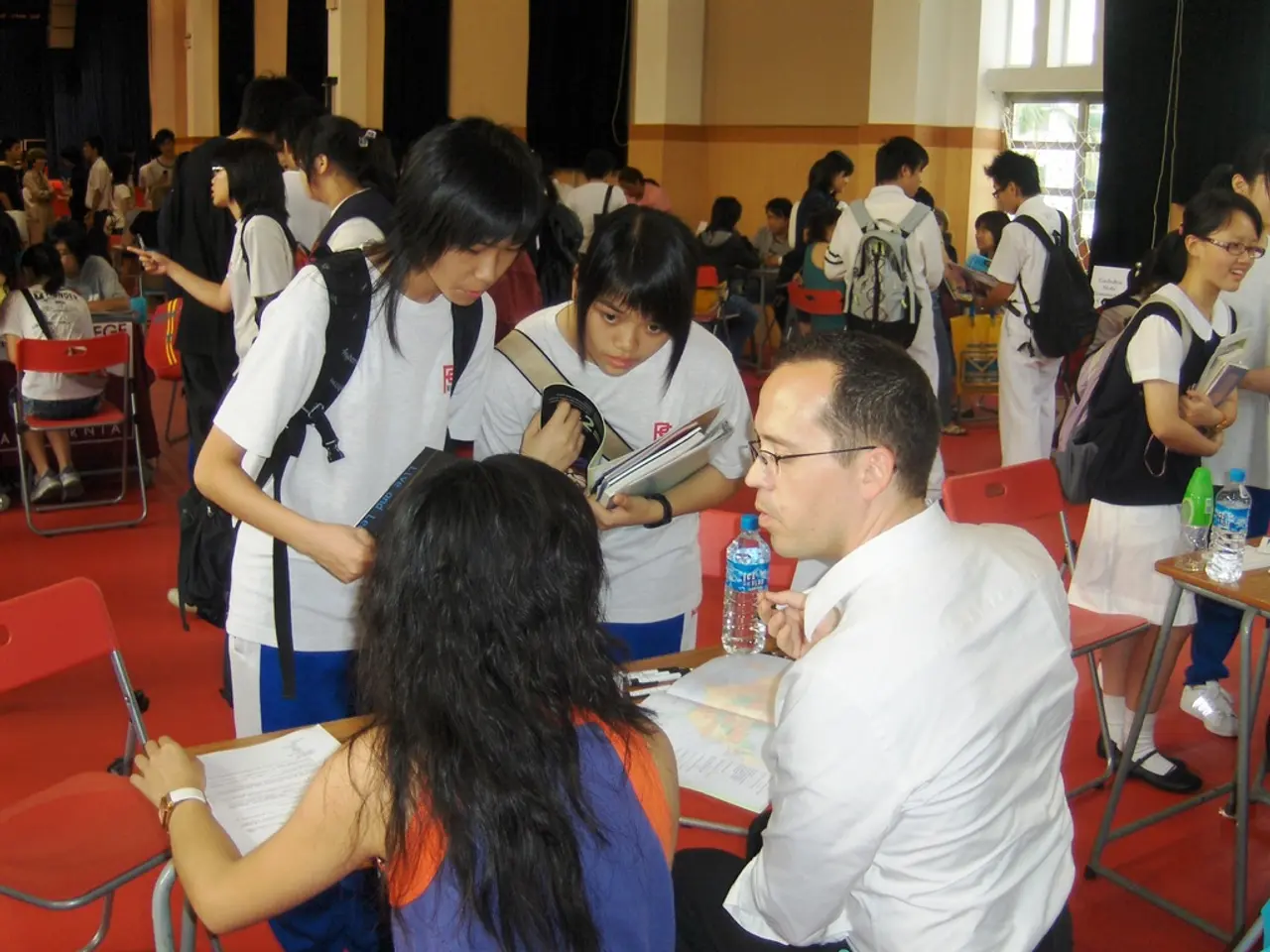Culture Minister Bans Gender-Specific Practices: Debate Replaces Niche!
In a move that has sparked controversy, Germany's Culture Minister, Wolfram Weimer, has banned the use of gender-neutral language within his department. This decision follows a similar policy decreed by Family Minister Karin Prien of the CDU earlier.
The small but significant example of a student's marked assignment shows that not only language, but also content, is changing. The student, a graduate in education, was marked down for using "student body" instead of "studentbody". The student wanted to use the word "circle of friends", but was suggested to use "friends circle" or "circle of friendly people".
This change doesn't seem like an academic freedom, but rather a dogma, ideology. The question arising from Weimer's news is: Who has the say in a democracy, the majority or the minority? A general debate about the issue would be appropriate.
Minister Weimer sees the German language in danger and enlisted the help of the Bild newspaper to ensure his decree wasn't overlooked. His stance is opposed by feminist groups, LGBTQ+ advocates, progressive political factions, and some educational and religious bodies who advocate for gender-neutral language to promote inclusivity and gender equality.
The German Bishops' Conference's educational commission, for instance, has drafted a document supporting gender-inclusive language in Catholic schools to foster respect for LGBTQ+ students and create a supportive environment for diverse gender identities. Feminists have advocated for modified noun forms accommodating gender neutrality since the 1990s.
However, conservative political stances are exemplified by Bavaria’s government, which has banned gender-sensitive language in official documents and classrooms starting April 1, 2024. This suggests a division in political stances, with some state governments resisting reforms toward gender neutrality while others and certain institutions advocate for it.
In summary, the debate over gender-neutral language remains divided between conservative older individuals and younger activists. The issue is contested and varies by federal state and institution. Germany does not have a uniform national policy mandating gender-neutral language in official documents. The student's final thesis is being written and the issue of language usage is still a concern.
Meanwhile, A ZDF report has been revised, and the ARD is concealing central details about Ballweg. The student lost half of her two language points for writing "teacher" once and "researcher" once. Conservative individuals prefer traditional designations like "employees and employees", while activists want to use "employees*". Minister Weimer has issued new guidelines for employees in his department, effective immediately. The student refused the suggested language and wrote "close circle" instead.
References:
- Feminist advocacy for gender-neutral language
- German Bishops' educational commission supports gender-inclusive language
- Bavaria’s government bans gender-sensitive language
- What about the impact on the debate, when books discussing feminist advocacy for gender-neutral language, like 'The Future of Gender-Neutral Language' or 'A Dictionary of Inclusive Language', pop up on social-media timelines and entertainment news gossip segments?
- As the student's graduation approaches, politics play a significant role in shaping her final thesis's content, with challenges between general-news articles headlining the clash between conservative traditionalists and progressive advocates for gender-neutral language.
- Particularly, in the realm of pop-culture and entertainment, discussion forums on social-media provide an open platform for those engaging with the general-news, expressing their opinions on the policies of ministers Weimer and Prien, as well as the stances of educational institutions, LGBTQ+ advocates, and religious bodies.






